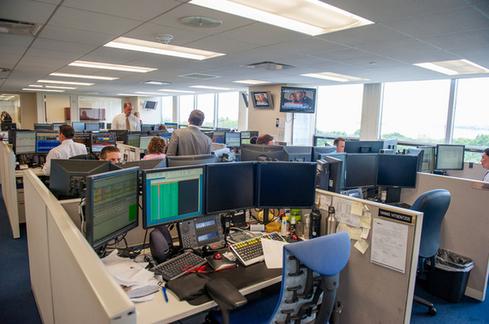08:05 AM
Risk Management Compensation Increases as Importance of Post Is Highlighted
It seems there is no end to the search for well-qualified executives. Despite the teetering stock market, compensation packages in risk management are continuing to skyrocket. And as the importance of risk management is becoming crystal clear, financial services firms are creating more positions dedicated to the area of risk. The need for qualified risk managers with competitive compensation packages continues to grow, says Deedee Myers, president and CEO of DDJ Myers, an executive recruiting firm. Overall, trends in compensation seem to be following a supply and demand crunch in the risk management area. Myers says that over the past two to three years, compensation numbers in the low to mid-range risk management positions have increased about 15% to 20%.
She adds that the surge in mergers and acquisitions--which would normally result in fewer posts available--hasn't even effected the number of hires. Even though many banks and financial firms are merging and consolidating, "We're seeing more boards and senior management teams recognizing the issues of continual change and increasing complexity (in risk management)," says Myers. "The percentage of banks practicing risk management is recognizably outpacing the rate of mergers and that definitely translates to a personnel shortage in the industry."
She explains that many high level CEOs and upper management have been losing their jobs and/or tainting their careers because of unexpected risks that are not effectively managed. Other firms are taking note and putting more people and processes in place to better manage their own risk. Myers also points out that incentives such as bonuses and stock options, which are driving up compensation packages, were not even offered three to four years ago. In addition, firms are trying hard to hold onto their employees who go out and get offers for higher salaries with counter offers to meet or better those numbers. "Firms don't want to lose that person because it takes a good year to get somebody on board again and get them up to speed and back in the flow, so there's a lot of counter-offering going on," says Myers.
Myers breaks down compensation in the risk management industry into three main positions--the risk analyst, the risk manager and the risk executive.
1 The most senior risk position is what Myers calls a risk executive, someone who recommends risk parameters and strategies and oversees implementation. The risk executive has 10 or more years of experience, holds an MBA and/or a CFA and has very strong communication skills. Base salaries for this position can be up to $350,000 with total compensation in the $900,000 range with bonuses and stock options.
2 The mid-level risk manager oversees the measurement and manages the risks within a firm. Typically, this person has an MBA or CFA and has worked as a risk analyst in at least two or more shops, usually with five or more years of experience. Salaries for a risk manager are generally in "the couple hundred thousand dollar range," says Myers, with bonuses usually in the 35% to 50% range and definite stock options.
3 The lower level risk analyst is the person doing the risk measurement, says Myers, and usually holds an MBA or CFA and has between 3 and 10 years of experience. Base salaries for this position are between $75,000 and $130,000 with bonuses typically between 20% to 30% of the salary and a possibility of stock options or restricted stock. In comparison, three to four years ago this same position was ranging between $45,000 and $50,000 per year, says Myers. As an indication of the recent shortage of risk personnel Myers notes, "however, in the past six to nine months we're seeing risk mangers with two years of experience, without an MBA, getting salaries of $75,000 to $95,000."




















